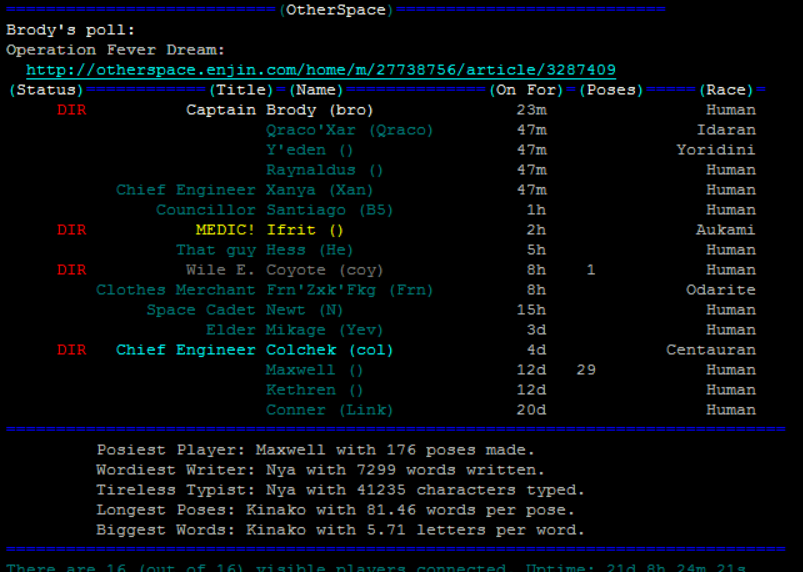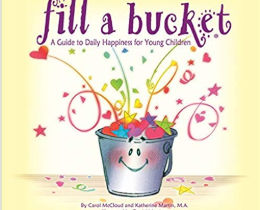Here’s a goofy essay that I wrote on the web back in 2003. Saving it here for posterity:
In 1983, the United States was under the grip of a brutal dictator with a penchant for jellybeans and happy-go-lucky quips about nuclear annihilation in close proximity to live microphones. Betamax videocassette recorders were the rage. And an upstart network called MTV dared to make a go of showing music videos around-the-clock.
Yes, indeed, the fertile media in that cultural petri dish proved perfect for the adulation due a band known as Men Without Hats and their classic musical missive, The Safety Dance.
We can dance if we want to
We can leave your friends behind
‘Cause your friends don’t dance
and if they don’t dance
Well they’re no friends of mine
The lyrics of Canadian protest singer Ivan Doroschuk are deceptively simplistic. They are, in fact, ripe with deep sociopolitical implications. They speak to intolerance in a world with high cultural borders and declining societal morals, in the era before the fall of the Berlin Wall and the collapse of the Soviet Union. Superficially, one might suspect that Doroschuk is simply trying to say that the subject of his attention need not bring fraternal companions if they prefer not to dance. But look deeper and one will find that he is, instead, actually speaking to the troubled relationship between the United States and the rest of the world, with its mad-dog dictators, pinko Communist hounds, and foppish black berets. Get in step with America, baby, Doroschuk is saying, or get left behind in the superpower slow lane.
Say, we can go where we want to
A place where they will never find
And we can act like we come
from out of this world
Leave the real one far behind
And we can dance, “dansez”
This prescient stanza demonstrates why so many music historians refer to Ivan Doroschuk as “Nostradamus in parachute pants.” While on the surface it seems to deal with the freedom of mobility in a too-strict class structure, it is in truth the eerily accurate prediction of the ascent and popularization of the Internet – “a place where they will never find”, indeed. A world without borders, without prejudice and without hate. A utopia where one cannot tell the freak from the frat boy. A place where one can not merely dance, but dansez. It would not be that great a leap to believe that a young Tennessee politician by the name of Al Gore might have heard these lyrics and found his inspiration for the World Wide Web, which he crafted from cathode ray tubes, egg cartons and Pop Rocks in his family’s barn.
We can go when we want to
Night is young and so am I
And we can dress real neat from
our hats to our feet
And surprise them with a victory cry
In a continuing effort to expand his cultural horizons, and to encourage his listeners to do the same, Doroschuk throws aside the concepts of curfews and crazy pants. No one can hold him back from going where he wants to go, when he wants to go there – although, for some reason, no matter what neat outfit he wears, he is constantly intent on doffing a hat on his head. This inherent contradiction with the band’s moniker, Men Without Hats, is no doubt a psychological exploration of man’s need for safety and security in spite of an underlying nature attuned to daring and risk-taking behaviors. Some have argued that this particular lyric, in the early advent of the AIDS epidemic, was one of the first public service announcements – veiled as thin as sheepskin to avoid the censors – urging young people to practice safe sex. The reference to the victory cry, and its surprising nature, may have less to do with a sartorial triumph and more to do with really making your girlfriend cut loose with an amazing orgasm. For once.
Say, we can act if we want to
If we don’t nobody will
And you can act real rude
and totally removed
And I can act like an imbecile,
and say
We can dance, we can dance
Everything’s out of control
We can dance, we can dance
We’re doing it from pole to pole
We can dance, we can dance
Everybody look at your hands
We can dance, we can dance
Everybody’s taking the chance
Safe to dance
Oh well its safe to dance
Yes it’s safe to dance
Music historians are divided when it comes to the interpretation of this passage, but most agree: The cocaine has clearly taken a pitbull-strength grip on Doroschuk’s brain stem, sending him through conflicting lyrical gyrations reminiscent of Virgil guiding Dante through the circles of Hell, past horrific visages of the ill-mannered, the gluttonous, the vain, the just plain stupid. Here, we see a man confronting the army of demons that confront him, struggling to remain morally afloat in an age that encourages excess, Members Only jackets, and the inexplicable popularity of Phil Collins.
We can dance if we want to
We’ve got all your life and mine
As long as we abuse it,
never going to lose it
Everything will work out right
In the midst of his verbal great white shark thrashing, Doroschuk briefly seems to make peace with those demons, finding a ray of hopefulness in a sky thick with black clouds of despair and splattering raindrops of melancholy. Everything, he assures us, will work out right. We’ve lost John Lennon. We’ve lost Brian Eno. People think bands such as Night Ranger and Mister Mister consist of musical geniuses. Nancy Reagan’s psychic adviser is probably selling state secrets to the Russians. But if we just dance along with everyone else, if we mind our own damned business and ignore the rest of the world, everything will work out right. To do otherwise is to invite the swirling winds of chaos, in which everything’s out of control.
I say, We can dance if we want to
We can leave your friends behind
‘Cause your friends don’t dance,
and if they don’t dance
Well they’re no friends of mine
I say, we can dance, we can dance
Everything’s out of control
We can dance, we can dance
We’re doing it from pole to pole
We can dance, we can dance
Everybody look at your hands
We can dance, we can dance
Everybody’s taking the chance
Well it’s safe to dance
Yes it’s safe to dance
Well it’s safe to dance
Well it’s safe to dance
Yes it’s safe to dance
Well it’s safe to dance
Well it’s safe to dance
It’s a Safety Dance
Well it’s a Safety Dance
Oh it’s a Safety Dance
Oh it’s a Safety Dance
Well it’s a Safety Dance
At first glance, it is easy to dismiss the final lyrical cascade of Doroschuk’s magnum opus as just a frenzied, slap-dash revisitation of previous lyrical content – the sort of thing one might expect from less scrupulous artists such as John Denver, Jimmy Buffett and that guy from Flock of Seagulls. But when one reconsiders the source, the font, of this dynamic textual whirlwind, the truth becomes manifest. Doroschuk is not merely droning on about the safety of dancing. He is speaking to a culture of fear. A culture of isolationistic paranoia. A nation that has forgotten how to embrace outsiders. A nation that has forgotten, more importantly, how to embrace itself and its passion. Like Gloria Gaynor’s plucky disco heroine, we will survive. We can dance.
It’s safe to dance.
Perhaps now, in our own troubled times in the infantile years of the 21st Century, this new millennium, we would be wise to heed these lyrics. Before we launch wars against concepts. Before we overthrow dictators in the name of ephemeral weapons of mass destruction. Before the Terminator becomes mayor of Carmel – or, worse, the entire state of California, we must do it, pole to pole.
Take the chance. It’s safe to dance.



